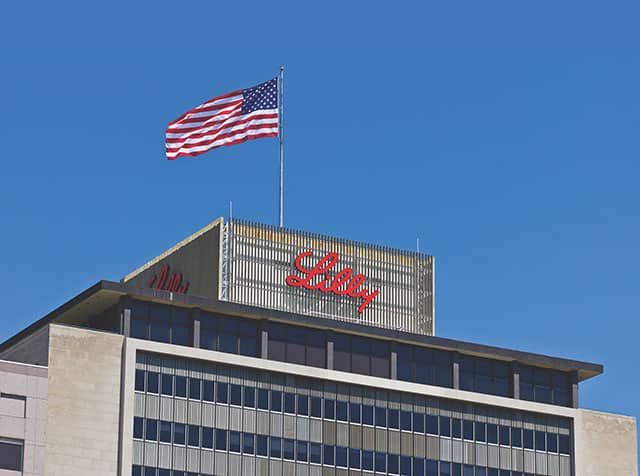
Eli Lilly’s IL-23 blocker mirikizumab has hit the mark in a phase 3 study in ulcerative colitis (UC), helping patients to achieve clinical remission 12 weeks after initiating treatment.
In the LUCENT-1 study, mirikizumab met the primary endpoint of clinical remission, where inflammation of the colon is controlled or resolved, at week 12 compared to placebo.
The IL-23 inhibitor also met all key secondary endpoints compared to placebo at week 12, including reduced bowel urgency, clinical response, endoscopic remission, symptomatic remission and improvement in endoscopic histologic inflammation.
In addition, Lilly’s drug led to an improvement in patient symptoms as early as four weeks into treatment.
Mirikizumab also reduced symptoms in patients who had previously not responded to or stopped responding to biologic and/or Janus Kinase (JAK) inhibitor drugs.
A maintenance study – LUCENT-2 – of mirikizumab in patients who have completed the 12 week induction study is ongoing. Lilly said in a statement that the full LUCENT study results will be revealed at a future congress or publication.
“Ulcerative colitis can be debilitating and unpredictable for the hundreds of thousands of people living with this chronic disease,” said Caren Heller, chief scientific officer for the Crohn’s & Colitis Foundation.
“We’re encouraged by these promising results for a potential new treatment that may help provide symptom relief and remission,” she added.
Lilly is also studying mirikizumab in another inflammatory bowel disease, Crohn’s disease, having published positive phase 2 data in this indication in October 2020.
In an update on the phase 2 SERENITY study, Lilly announced that mirikizumab continued to show symptom improvement and reduction of intestinal inflammation in patients with moderately to severely active Crohn’s up until 52 weeks of treatment.
In the induction period, patients were randomised across four treatment arms to receive placebo or one of three doses of mirikizumab intravenously.
At 12 weeks, patients who showed endoscopic improvement were randomised to continue mirikizumab treatment, administered either intravenously or subcutaneously. Patient who didn’t show endoscopic improvement or who had been in the placebo arm in induction were also assigned to receive mirkizumab treatment intravenously.
In the continued treatment study period, nearly 60% of patients achieved endoscopic response, which reflects a ‘substantial reduction’ in inflammation in the lining of the bowel.
Over 45% of patients also achieved patient reported outcomes (PRO) remission.
For Crohn’s, mirikizumab is in a close race with AbbVie’s IL-23 inhibitor Skyrizi (risankizumab), which recently met both primary endpoints of clinical remission and endoscopic response at week 12 in this indication.
Skyrizi is also being evaluated in a phase 2/3 trial for ulcerative colitis, with September 2022 as the primary completion date for this study.




